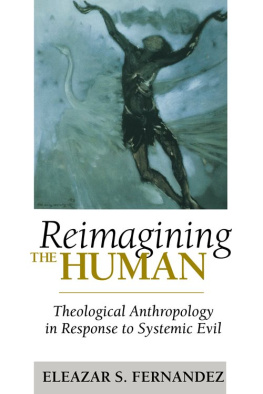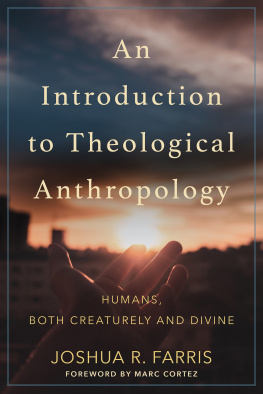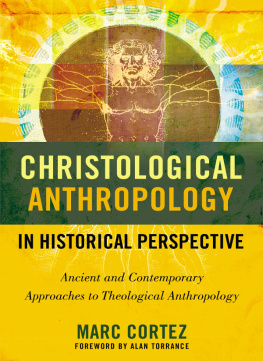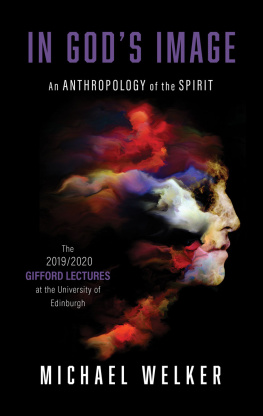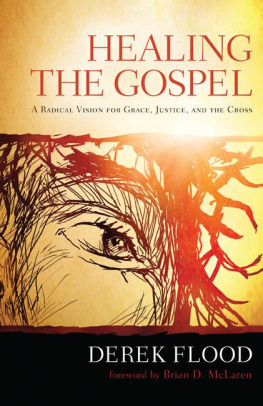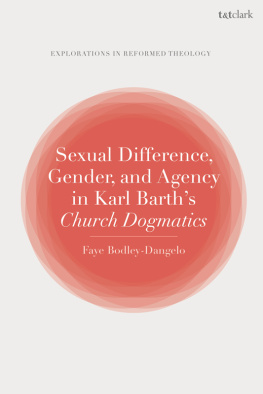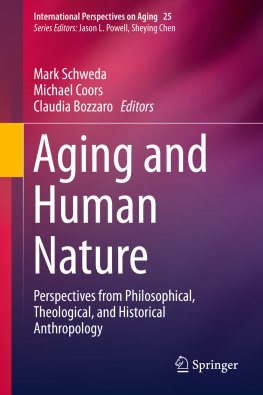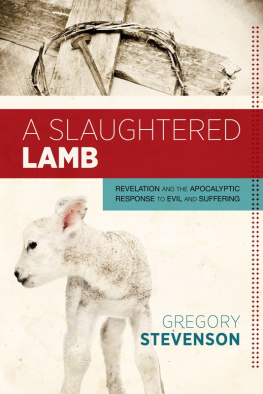Edited by Fumitaka Matsuoka and Eleazar S. Fernandez
Theological Anthropology
in Response to Systemic Evil
ELEAZAR S. FERNANDEZ

Copyright 2004 by Eleazar S. Fernandez
All rights reserved. For permission to reuse content, please contact Copyright Clearance Center, 222 Rosewood Drive, Danvers, MA 01923, (978) 750-8400, www.copyright.com.
Biblical quotations, unless otherwise noted, are from the New Revised Standard Version Bible , copyright 1989, Division of Christian Education of the National Council of the Churches of Christ in the United States of America. Used by permission. All rights reserved.
Excerpt on pages 22425 is from The Woodcarver by Thomas Merton, from THE WAY OF CHUANG TZU, copyright 1965 by the Abbey of Gethsemani. Used by permission of New Directions Publishing Corporation.
Excerpt on page 164 is from Barra and Turtle by Christine Rowan, in Earth Revealing, Earth Healing: Ecology and Christian Theology , edited by Denis Edwards, copyright 2001. Used by permission of Liturgical Press.
Cover art: The Ascension, Bagong Kussudiardja, Asian Christian Art Association
Cover and interior design: Elizabeth Wright
Visit Chalice Press on the World Wide Web at
www.chalicepress.com
10 9 8 7 6 5 4 3 2 | 09 10 11 12 13 14 |
Library of Congress CataloginginPublication Data
Fernandez, Eleazar S.
Reimagining the human : theological anthropology in response to systemic evil / Eleazar S. Fernandez. 1st ed.
p. cm.
ISBN 978-0-827232-52-5 (alk. paper)
1. Man (Christian theology) 2. Church and social problems. I. Title.
BT701.3.F47 2003
233dc22
2003018448
Printed in the United States of America
To Josephine
Whose companionship helped me to behold
the flower in the bud ,
the spring in the freezing winter ,
the butterfly in the chrysalis ,
the universe in a grain of sand ,
the sacred in the ordinary ,
the timeless in the timely .
Contents
Writing this book has been a journey of challenges and tremendous blessings. I am aware of those moments when the challenges seemed obstacles and the blessings mere distractions. As authors know, writing a book demands such dedication and focus that it is easy to view as distractions those things that compete with our attention. Writing demands such singular attention that it is easy not to be mindful of our deep and delicate connections. I have been so determined to finish this project that I can only ask forgiveness from those individuals and creatures I may have treated as distractions along the way. I would like to name in particular my family, especially my growing children, Zarine and Joelle, students in my courses, and advisees.
Without doubt, the challenges that I encountered along the way delayed the speedy completion of this project. But they may have saved me from taking wrong turns and heading off in mistaken directions. With the gift of hindsight, I realize that the challenges encountered in writing this book have deepened and broadened my understanding of life and the world. Lifes challenges have required me to set my project aside at times, allowing it to gather dust and cobwebs. They have forced me to acknowledge that there is more to life than writing a book and committing it to publication.
Indeed, there is more to life that we need to attend to while writing a book project like this. There are the daily chores, errands, and meetings to attend to as well as delightful moments of celebration: moments to enjoy with friends, moments to listen to uplifting music, moments to watch the changing color of the seasons, and moments to slow down and forget the flow of time. Writing this book has been a growth-producing and life-transforming experience. I feel like I have grown and matured along with this project. Looking back at my files, I realize that this book was not just written yesterday. To my amazement, the notes and research projects I drew on for this work extended as far back as my doctoral studies. As the years passed, I developed this material further while shaping my lecture notes for my course on theological anthropology.
Pondering the long and slow evolution of this writing project, I wonder if I can ever adequately express my deep gratitude to all those who have helped me along the way, whether directly or indirectly. I am sure I cannot remember and name all individuals and events, so it is appropriate that I express my general appreciation to all those who have graced my life. The meeting of our lives has fertilized my thoughts, shaping them in the direction that is now set forth in this book.
More particularly, I want to express my deep gratitude to Nancy Victorin-Vangerud, a longtime friend and colleague who now teaches at Murdoch University, Perth, Australia, for a thorough critique of the whole manuscript and for gentle suggestions. My gratitude goes as well to her husband, Bob, for friendship and hospitality, especially during my visit to Perth. I am also grateful to Fumitaka Matsuoka for his thoughtful comments and for helping me see the limitations of traditional theological categories. Likewise, I am grateful to Kosuke Koyama, who now resides in Minneapolis, for reading the whole manuscript and for his supportive response. Moreover, I want to express my gratitude to Jon L. Berquist of Chalice Press for his enthusiastic support and editorial supervision.
As each of the chapters unfolded over the years, I have been graced by able student assistants. I want to thank Katherine McCurry, Rodney Richards, Matthew Bersagel-Braley, and Kathleen Remund. They served as the first readers of my manuscript and alerted me to some aspects that needed to be clarified or polished. Also worthy of my acknowledgment are individuals who provided me with technical assistance: Dale Dobias, Renee Dougherty, Len Kne, Cindi Beth Johnson, Mary Ann Nelson, and Marcial Vasquez. I remember the times when I stopped them in the hallway to ask for help with research, computer program applications, or copying work.
I also want to express my gratitude to United Theological Seminary of the Twin Cities for two semesters of sabbatical leave that allowed me to focus on writing this book. I am grateful in particular to our dean, Richard Weis, for his encouragement and for his ingenuity in looking for additional financial support in the midst of budgetary constraints. My UTS colleagues deserve my gratitude for giving me the opportunity to present a chapter at one of our faculty gatherings. And to the students in my courses, particularly the course on theological anthropology, I am grateful for your companionship in wrestling with some of the issues I addressed in this book.
As a person who has been blessed by global church connections, I am thankful to many friends and institutions from various countries. My teaching experience at Lisu Theological Seminary in the northern part of Myanmar (Burma), my visit to Fiji and Australia, a theological education seminar in Switzerland, and trips to the U.S.-Mexico border and southern India helped me see the global dimensions of the interlocking systemic evils addressed in this book. I want to thank in particular James Vijayakumar for my trip to southern India in June 2002. My profound thanks go to my host J. Premkumar and his wife Senega of Colachel, Tamil Nadu, for heart-warming hospitality that I will always cherish. And I am deeply thankful to Bishop V. Devasahayam, Diocese of Madras, Church of South India, for helping me see that church ministry can truly make a difference in peoples lives.

